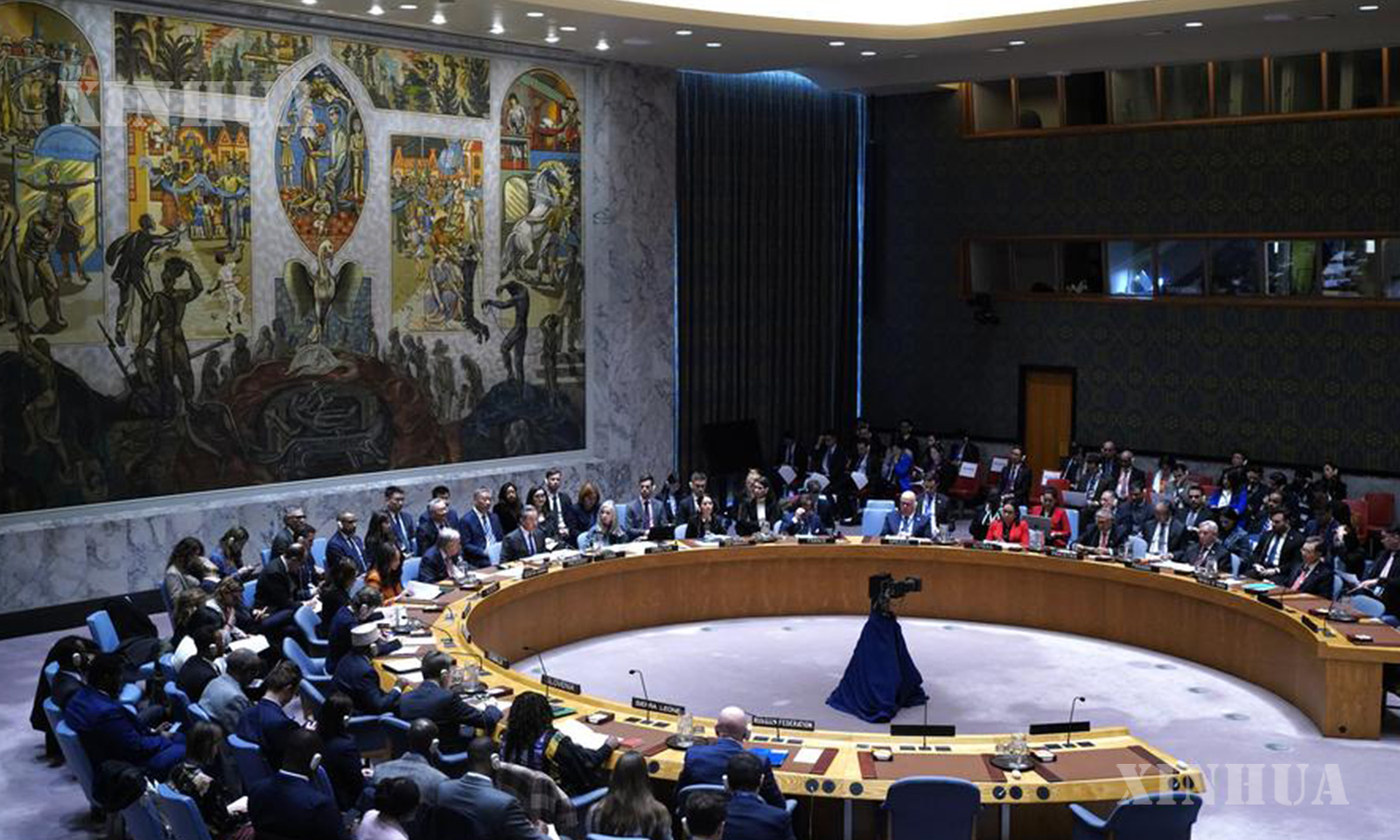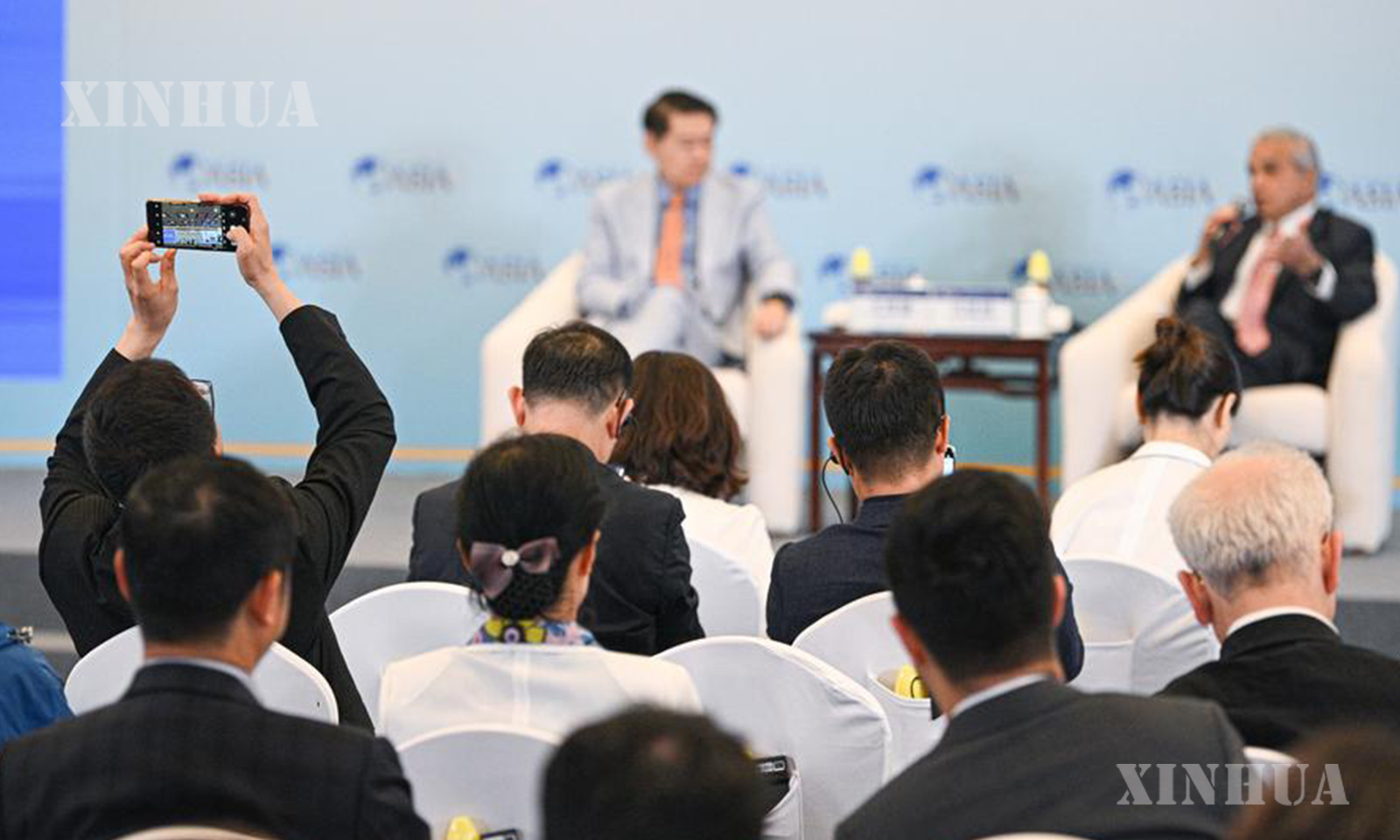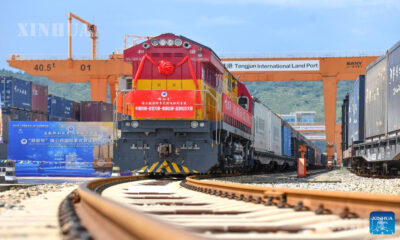Asia
နိုင်ငံစုံပူးပေါင်းဆောင်ရွက်ရေးဝါဒ ခိုင်မာအားကောင်းအောင် လုပ်ဆောင်ခြင်းက ကမ္ဘာကြီး၏ တည်ငြိမ်မှု၊ ဖွံ့ဖြိုးမှုအတွက် ပဓာနကျဟု ကျွမ်းကျင်သူများ ဆို

ကွာလာလမ်ပူ၊ ဇွန် ၂၀ ရက် (ဆင်ဟွာ)
နိုင်ငံစုံပူးပေါင်းဆောင်ရွက်ရေးဝါဒ ခိုင်မာအားကောင်းအောင် လုပ်ဆောင်ခြင်းက ကမ္ဘာပေါ်တွင် လက်ရှိကြုံတွေ့နေရသော ပထဝီနိုင်ငံရေး တင်းမာမှုများကို ကျော်လွှားနိုင်စေမည်ဖြစ်ကာ ပူးပေါင်းဆောင်ရွက်မှု၊ စဉ်ဆက်မပြတ် စီးပွားရေးဖွံ့ဖြိုးမှုအတွက်လည်း လမ်းဖွင့်ပေးမည်ဖြစ်ကြောင်း မဟာဗျူဟာနှင့် နိုင်ငံတကာလေ့လာရေး အင်စတီကျု (ISIS) (မလေးရှား) က ကွာလာလမ်ပူမြို့တွင် ကျင်းပသည့် ဖိုရမ်၌ ကျွမ်းကျင်သူများက ပြောကြားခဲ့သည်။
စင်စစ်အားဖြင့် နိုင်ငံတကာအသိုက်အဝန်းအား ပိုင်းခြားကန့်သတ်ထားသည်မှာ အနောက်ကမ္ဘာနှင့် ကမ္ဘာ့တောင်ဘက်ခြမ်းဟူ၍ မဟုတ်ဘဲ ကမ္ဘာ့ရေးရာများတွင် ဘုံတန်ဖိုးများနှင့် စံနှုန်းများကို စောင့်ထိန်းသည့် နိုင်ငံများနှင့် စောင့်ထိန်းခြင်းမရှိသည့် နိုင်ငံများကို ပိုင်းခြားထားခြင်းသာဖြစ်ကြောင်း ကွာလာလမ်ပူမြို့တွင် ဇွန် ၁၇ ရက်မှ ၁၉ ရက်အထိ ကျင်းပခဲ့သည့် ၃၈ ကြိမ်မြောက် အာရှ-ပစိဖိတ် စကားဝိုင်းဆွေးနွေးပွဲ (APR) ၌ ကျွမ်းကျင်သူများက ထောက်ပြပြောဆိုခဲ့သည်။
နိုင်ငံငယ်များ၊ အလယ်အလတ်အရွယ်အစားရှိ နိုင်ငံများအနေဖြင့် ပိုမိုအပြောင်းအလဲမြန်လာသော ကမ္ဘာကြီးအား ထိန်းကျောင်းတည့်မတ်ပေးမည့် ဗဟုဝင်ရိုး မိတ်ဖက်ဆက်ဆံရေးနှင့် အခြားမူဘောင်များအပေါ် ပိုမိုအမှီပြုလာရသည်ဟု ၎င်းတို့က အလေးထားပြောကြားခဲ့သည်။
နိုင်ငံငယ်များအနေဖြင့် ဘုံတူညီသော ဦးစားပေးသတ်မှတ်ချက်များနှင့် အပြန်အလှန်ယုံကြည်မှုတို့အပေါ် အခြေခံသည့် မိတ်ဖက်ဆက်ဆံမှုများကို အခိုင်အမာတည်ဆောက်ခြင်းဖြင့် ၎င်းတို့၏ အကျိုးစီးပွားကို ကာကွယ်နိုင်မည့် နည်းလမ်းသစ်များကို ရှာဖွေလျက်ရှိကြောင်း အာရှ နယူးဇီလန်ဖောင်ဒေးရှင်း အမှုဆောင်ချုပ်ဖြစ်သူ ဆူဇန်နာ ဂျက်ဆက်ပ်က မှတ်ချက်ပြုခဲ့သည်။
“ကမ္ဘာကြီးဟာ ပိုပြီးခန့်မှန်းရခက်လာလေ နိုင်ငံငယ်တွေနဲ့ အလယ်အလတ်အရွယ်အစားရှိတဲ့ နိုင်ငံတွေအပေါ် ပိုပြီးရိုက်ခတ်လေပါပဲ။ နိုင်ငံငယ်တွေနဲ့ အလယ်အလတ်အရွယ်အစားရှိတဲ့ နိုင်ငံတွေဟာ အင်အားကြီးသူသာ အနိုင်ရတတ်တဲ့၊ ပူးပေါင်းဆောင်ရွက်ဖို့ ကြိုးပမ်းအားထုတ်ရမယ့်အစား ဝရုန်းသုန်းကား အခြေအနေတွေနဲ့သာ ရင်ဆိုင်နေရတဲ့ ကမ္ဘာကြီးဆီ ဦးတည်နေတဲ့ အရွေ့ကို ကြံ့ကြံ့ခံရင်ဆိုင်ရာမှာ သိသာထင်ရှားတဲ့ စိန်ခေါ်မှုရှိနေတယ်” ဟု ၎င်းက ဆက်လက်ပြောကြားခဲ့သည်။
မလေးရှား နိုင်ငံခြားရေးဝန်ကြီး မိုဟာမက် ဟာဆန်ကလည်း ဒေသအလိုက် ကြံ့ကြံ့ခံနိုင်စွမ်းကို ခိုင်မာအောင် လုပ်ဆောင်ကာ မဟာဗျူဟာမိတ်ဖက် တစ်ဦးတည်းအပေါ် မှီခိုအားထားခြင်းမှ ဖယ်ခွာရန် လိုအပ်သည်ဟု အလေးအနက်ပြောဆိုခဲ့သည်။
“ကျွန်တော်တို့ဟာ နိုင်ငံစုံပူးပေါင်းဆောင်ရွက်ရေးဝါဒ ဆက်လက်တည်တံ့အောင် ထိန်းသိမ်းရမှာဖြစ်သလို ကျွန်တော်တို့ရဲ့ လုပ်ကိုင်ဆောင်ရွက်ပုံကိုလည်း အသေအချာ ပြောင်းလဲဖို့လိုပါလိမ့်မယ်။ ကျွန်တော်တို့အနေနဲ့ မတည်ငြိမ်မှုတွေကို ကျော်လွှားနိုင်ဖို့ မိတ်ဖက်တစ်ဦးတစ်ယောက်အပေါ် အလွန်အမင်း မျှော်လင့်အားထားနေတာကို ရပ်တန့်ပြီး အပြန်အလှန် ရိုင်းပင်းကူညီနိုင်တဲ့ နိုင်ငံတကာ ပူးပေါင်းဆောင်ရွက်မှုကို ပျိုးထောင်ပေးဖို့ အချိန်တန်ပါပြီ” ဟု ၎င်းက ပြောကြားခဲ့သည်။ (Xinhua)
သတင်းအပြည့်အစုံကို ဖော်ပြပါလင့်ခ်မှတစ်ဆင့် ဝင်ရောက်ဖတ်ရှုနိုင်ပါသည်။ xhtxs.cn/4vK

………………..
(English Version)
Strengthening multilateralism key to global stability, growth: experts
KUALA LUMPUR, June 19 (Xinhua) — Strengthening multilateralism will enable the world to move beyond current geopolitical tensions, paving the way for cooperation and sustained economic growth, experts told a forum organized by the Institute of Strategic and International Studies (ISIS) Malaysia here.
During the June 17-19 38th Asia-Pacific Roundtable (APR) held in Kuala Lumpur, experts also noted that the real divide in the international community is not between the West and the Global South, but between countries that adhere to common values and norms in global affairs, and those that do not.
They noted that small and medium-sized powers are increasingly relying on multipolar partnerships and alternative frameworks to navigate a more volatile world.
Chief executive of the Asia New Zealand Foundation Suzannah Jessep observed that smaller countries are finding new ways to protect their interests by forging partnerships built on shared priorities and mutual trust.
“The world has become more unpredictable, more so for small and middle powers… Small and middle-sized powers have a clear stake in resisting the drift toward a world where ‘might is right’ and where we are left to contend with chaos rather than pursue cooperation,” she added.
Malaysian Foreign Minister Mohamad Hasan stressed the need to strengthen regional resilience and shift away from relying on singular strategic partners.
“We must keep multilateralism alive. But we also have to ensure that the way we do it changes… It is time for us to stop pinning the weight of our hopes on any one partner to carry us through instability, but instead, to nurture international cooperation that enables us to all support each other,” he said. xhtxs.cn/4vK
English Caption
Chinese Foreign Minister Wang Yi, also a member of the Political Bureau of the Communist Party of China Central Committee, chairs the UN Security Council’s high-level meeting on “Practicing multilateralism, reforming and improving global governance” at the UN headquarters in New York on Feb. 18, 2025. (Xinhua/Wu Xiaoling)






